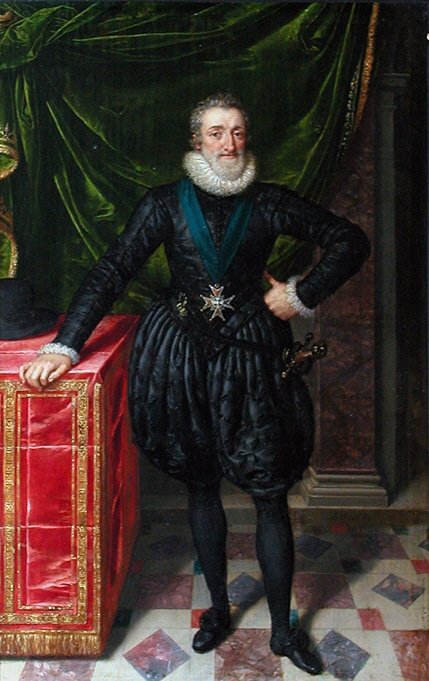
A Protestant prince, dispossessed of his kingdom and a Protestant rebel leader in another, found himself heir to the Catholic king's throne. His descendants today rule over the dispossessed king's former dominion.
Story in the evening ...
Story in the evening ...
https://twitter.com/Arby_K/status/1320205257830379521
Henri de Bourbon was born in 1553 as the son of Antoine de Bourbon, Duke of Vendome and Queen Juana of Navarre. Baptized as a Catholic, he was raised as a Calvinist by his mother. 1/10 

Navarre was one of the oldest Christian kingdoms in the Iberian peninsula. But it was conquered by neighbouring Aragon in 1512, leaving a rump state north of the Pyrenees. It is this kingdom Henri would inherit from his mother in 1572. 2/10 

In addition to the kingdom, he would also inherit Foix, Bigorre, Bearn, Armagnac, Rodez, Albret, Limoges and Périgord from his mother and Vendôme from his father in 1562, all provinces in the Kingdom of France. 3/10 

France was in a state of war, over religion; with Catholics led by Henri de Guise (Of the House of Lorraine) on one side and Huguenots (Calvinists) led by the House of Condé (Henri's uncles) and Henri on the other. 4/10 

Henri's father, Antoine de Bourbon, had died fighting for the Catholics with his cousin, Francois de Guise (Father of Henri de Guise), in Rouen in 1562, while Antoine's brother, Louis de Bourbon-Condé, fought on the opposing side. 5/10 

The ruling House of Valois tried to avoid a full fledged civil war with Henri de Bourbon marrying Marguerite de Valois, sister of the king. But the marriage would be marred by the the St. Bartholomew's Day massacre which saw Catholics killing many Protestant leaders. 6/10 

In 1584, Henri de Bourbon would become the heir to the throne. This would increase the stake for the Catholic League and with popular support, the Estates-General would push the king to suppress Huguenots. But the king would end up killing Henri de Guise instead. 7/10 

King Henri III would in turn be killed by Jacques Clément, a Catholic friar in 1589. With Catholics still controlling Paris, it would be a while for the new king to claim his position with its authority. 8/10 

As the Catholic League searched for a potential replacement, Henri IV would convert to Catholicism in 1594, enabling him to take the throne de facto. In 1598, he would proclaim the Edict of Nantes setting in motion the separation of the church and the state. 9/10 

Henri's descendants would rule France till 1848, except between 1792-1815. In 1713 Philippe de France, a descendant of Henri, would be crowned King of Spain, of which Upper Navarre was a part, the kingdom Henri's ancestors lost. Spain is still ruled by the House of Bourbon. 10/10 

• • •
Missing some Tweet in this thread? You can try to
force a refresh














